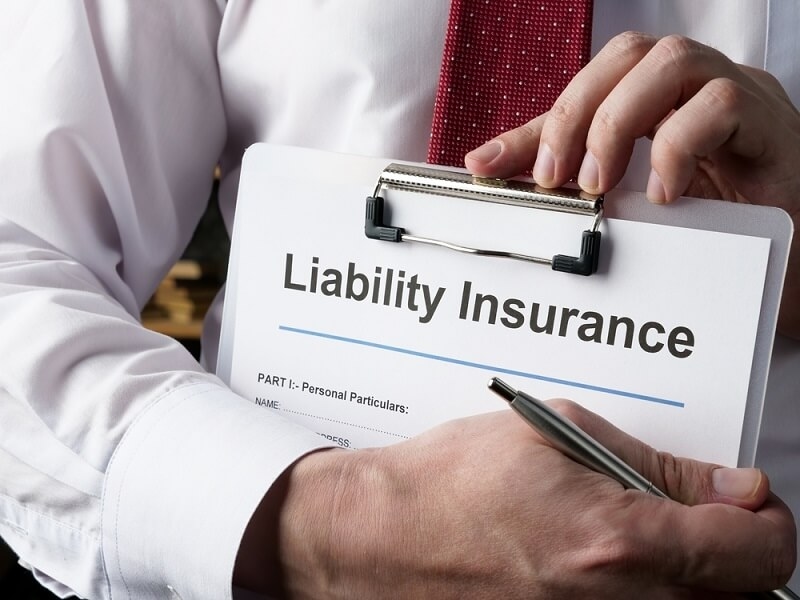
In terms of securing your financial future, getting the right liability insurance coverage ranks extremely high on the list of priorities. It doesn't matter if you are a homeowner, renter, or businessperson; liability protection means you are protected from the unforeseen, expensive consequences of an accident or damages for which you are legally liable. For this reason, it is essential to understand the meaning of personal liability and to have lawsuit coverage explained.
In today's world, with just one little accident or injury, you can find yourself in an expensive lawsuit. Knowing how much liability coverage you need and understanding the differences between liability and property insurance can help you protect your valuable assets and provide peace of mind.
Liability insurance coverage is a financial safeguard that assists in paying costs when you are held legally responsible for damage or injury to someone else or their property. Liability insurance coverage would cover legal fees, settlements, or judgments up to the policy limit.
Liability insurance would apply to various situations, including:
For instance, if a friend visits your house and slips and falls, your liability coverage would pay for their medical expenses and any legal fees incurred if they decide to sue you. Without liability coverage, that expense is coming from your pocket.
To understand liability insurance protection, it is helpful to understand the definition of personal liability. Personal liability is your legal and financial responsibility when someone suffers an injury or their property is damaged due to your conduct or negligence.
What does that practically mean?
Having insurance that includes personal liability coverage is a way to avoid financial loss in such situations. Some home and renters' insurance policies offer personal liability coverage, providing an additional level of protection.

Understanding lawsuit coverage can help you understand the importance of liability coverage. If someone sues you for injury or damage to property, the coverage will kick in to cover legal and any potential settlement costs.
Generally, it includes the following:
Even a small claim with no coverage could financially burden you. This is why it is recommended that you routinely review your policy to ensure your limits are sufficient to protect against potential exposure.
Many people confuse liability insurance and property insurance, when in fact they are different types of coverage. Once you understand and can differentiate between liability and property insurance, you will be able to choose a proper combination of coverage.
For instance, if your roof is damaged due to a storm, your property insurance will cover the repair costs; however, if a tree from your yard falls on your neighbor's house, your liability insurance coverage would pay for the resulting damage. These two coverages work together as part of a healthy insurance coverage strategy.
A frequent question among policyholders is how much liability coverage they really need. The amount you need will depend on your lifestyle, assets, and level of exposure.
Here are some rules of thumb to consider:
Consider your financial situation; if the total value of your assets is $500,000, it makes sense to have at least the same amount in liability coverage. You don't want to risk losing your savings, home, or investments if you are the subject of a lawsuit.
If you require even more coverage, consider an umbrella policy link that may provide additional coverage beyond your regular policies. An umbrella policy serves to cover your assets when the liability limits have been exceeded.
For example:
An additional umbrella policy may be a reasonable choice due to the amount of coverage it provides. Additional protections may be available if you are a homeowner, landlord, or an individual with a high income.
There are innumerable day-to-day occurrences in which liability insurance coverage is beneficial. Some common examples include:
Liability insurance covers these expenses, such as damage, medical bills, and legal fees, should you need to engage a lawyer. If you didn't have this insurance coverage, you would incur financial difficulty or be in debt due to the unanticipated expenses you've incurred.
Even though liability insurance is essential, people often make mistakes that reduce its effectiveness. Here are some to avoid:
Being proactive and informed helps you maximize your coverage benefits and minimize potential financial risk.
Whether it’s part of your home, auto, or business insurance, liability insurance coverage is one of the smartest investments you can make. It not only safeguards your finances but also ensures that an unexpected event doesn’t derail your long-term financial goals.
Understanding the difference between liability and property insurance, reviewing lawsuit coverage, and exploring your umbrella policy options are all steps toward securing a financially stable future.
Having the right liability insurance coverage gives you financial protection and peace of mind in uncertain times. By understanding the meaning of personal liability, lawsuit coverage, and how much liability coverage is needed, you can make informed decisions that safeguard your assets and future. Choose wisely, stay protected, and secure what matters most.
This content was created by AI